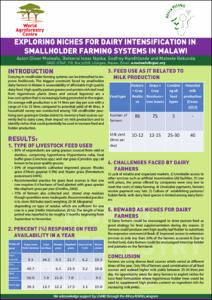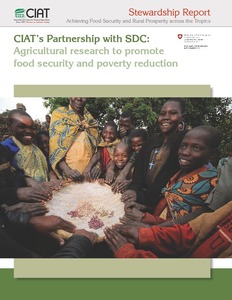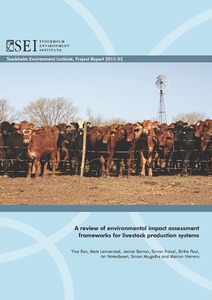Mission
To reduce hunger and poverty, and improve human nutrition in the tropics through research aimed at increasing the eco-efficiency of agriculture.
People
CIAT’s staff includes about 200 scientists. Supported by a wide array of donors, the Center collaborates with hundreds of partners to conduct high-quality research and translate the results into development impact. A Board of Trustees provides oversight of CIAT’s research and financial management.
Values
- Shared organizational ethic
- We respect each other, our partners, and the people who benefit from our work. We act with honesty, integrity, transparency, and environmental responsibility in all of our joint endeavors.
- Learning through partnerships
- We work efficiently and pragmatically together and with partners. Considering our diversity to be a key asset, we adapt readily to change and strive to improve our performance through continuous learning.
- Innovation for impact
- We develop innovative solutions to important challenges in tropical agriculture, resulting in major benefits for the people who support, participate in, and profit from our work.
Members:
Resources
Displaying 261 - 265 of 958Exploring niches for dairy intensification in smallholder farming systems in Malawi
CIAT's partnership with SDC: agricultural research to promote food security and poverty reduction
A review of environmental impact assessment frameworks for livestock production systems
A paso acelerado en forrajes tropicales para crear sistemas agrícolas de doble ventaja
Exposure maps: cocoa suitability
Cocoa is increasingly recognized as a crop which is vulnerable to climate change. However, the extent to which current growing areas in Indonesia will be climatically unsuited to cultivation in the future is unknown. This uncertainty makes it difficult for smallholder farmers to plan production at a farm level and for multinational exporters, processors and manufacturers, to forecast yields at a value chain level.
The third in a collection of CIAT fundraising factsheets that provide overviews of the following cocoa in Indonesia issues:






